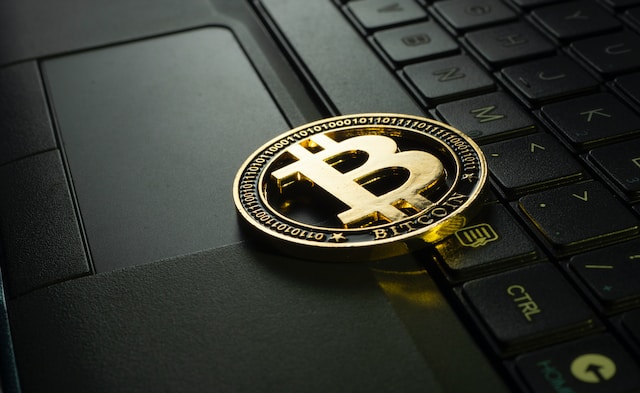The Rise and Fall of XRP, A Detailed Analysis

In the ever-changing world of cryptocurrencies, one name that has constantly been in the limelight is XRP. A digital asset like no other, had quite a tumultuous journey. This article aims to delve deep into the story of XRP, drawing a comprehensive picture of its meteoric rise and its subsequent fall.
In its early days, it was hailed as the future of currency exchange, promising quick international transactions and reduced costs. Created by Ripple Labs Inc. as a real-time gross settlement system, remittance network, and digital currency exchange, it was expected to revolutionize how international transactions were conducted.
However, just as quickly as it rose, allegations of misconduct and regulatory action began to chip away at its glowing image.
In the sections to follow, we’ll closely examine these factors, offering a balanced portrayal of how XRP, the coin that held so much promise, began its downward slide. Foregrounding expert opinions and key events in XRP’s timeline, we will gain a nuanced understanding of one of the most intriguing chapters in cryptocurrency history. So sit tight and delve into the fascinating world of XRP.
Table of Contents
Understanding XRP: A Deep Dive into its Technology and Functions
For those unfamiliar with the realm of cryptocurrencies, the term “XRP” is increasingly becoming prominent. it is a digital asset and a technology that primarily facilitates faster, cost-effective international transactions.
What Makes Functional?
Created by Ripple Labs Inc., a technology company specializing in the development and provision of real-time gross settlement system, currency exchange, and remittance network. Designed with a completely different protocol from Bitcoin and Ethereum, it operates on the Ripple Network, or RippleNet – a technology distinctly built to improve international transactions.
The digital asset, acts as a bridge currency to other currencies, making it easy to facilitate transactions which wouldn’t be possible in the traditional banking systems. The inherent speed and scalability of it make it particularly effective for powering swift, reliable, and low-cost international money transfers.
The Ripple Protocol Consensus Algorithm
What renders it exceptionally unique and practical is the technology it’s built on – the Ripple Protocol Consensus Algorithm (RPCA). Unlike Bitcoin and other cryptocurrencies that use Proof-of-Work (PoW) or Proof-of-Stake (PoS) algorithms, the RPCA is designed to enable fast and low-cost transactions.
In the RPCA, every node (validator) partakes in the consensus process, which eliminates the need for mining (a profound issue related to power consumption in other cryptocurrencies). This consensus allows for quicker validations and higher transaction throughput. The major advantage of this unique process is the immense decrease in energy consumption compared to other significant cryptocurrencies.
The Role of XRP
As a native digital asset of the XRP Ledger, is used essentially to prevent spam. To submit transactions, a small amount of XRP is required, safeguarding the system against those who might attempt to disrupt it.
The crucial role of XRP in enhancing liquidity for banks is a salient feature. For financial institutions seeking to enable real-time, cross-border payments, provides an efficient, scalable, reliable liquidity option.
Overall, the trailblazing technology powering it and its wide array of functionalities factor into its growing relevance in remittance and settlement sectors.
XRP’s Unique Features: What Sets it Apart from Other Cryptocurrencies
Its unique features set it apart from the ordinary spectrum of cryptocurrencies, making it an incredible experiment in the digital economy. But what exactly distinguishes it from the rest?
Integrated Currency Exchange
In most blockchains, tokens, also known as cryptocurrencies, serve one single purpose. However, it’s a different ball game.
it ledger represents any type of asset, from cryptocurrencies like Bitcoin to fiat currencies like USD, making it one-of-a-kind integrated currency exchange. This versatility gives XRP a stronger foothold in global finance.
Speed and Scalability
Unlike the prevalent Bitcoin network, which takes an average of 10 minutes to validate a transaction, it requires only a few seconds. Besides, the infrastructure is designed for scalability. It’s capable of supporting 1,500 transactions per second, easily outpacing Bitcoin and Ethereum networks.
Low Transaction Cost
Most promising features is its incredibly low transaction cost. This attribute makes it an excellent solution for micropayments, opening up avenues for its use in areas like video gaming, digital media, and online content.
Controlled Network With A Solid Foundation
Unlike other decentralized cryptocurrencies, it operates under a single corporation, Ripple Labs Inc. This oversight gives it a unique attribute because the company guarantees dedicated continued development and promotion. The blockchain’s consistent updates are due to a dedicated team, translating to improved functionality and stability.
Deflationary Currency
A distinct aspect of XRP’s economic model is that it’s deflationary. Unlike Bitcoin and most traditional currencies, the number of XRP in existence decreases over time. Every time a transaction takes place on the XRP network, a small amount of XRP is ‘burnt’ or destroyed. This design helps control inflation and potentially increase the value of remaining it over time.
These features differentiate it from many other existing cryptocurrencies and make it a strong contender in the market. However, similar to any other asset, XRP’s success is inevitably tied to various factors, including technological adoption, regulatory challenges, and market forces.

Controversies and Criticisms: Debunking Myths
Despite the impressive functionality and unique features of XRP, controversies and criticisms surrounding the cryptocurrency have led to a number of misconceptions about it. Understanding these criticisms is key to grasping the true state of XRP’s status within the crypto ecosystem. Allow us to debunk some of these myths for you.
The Question of Centralization
One of the most significant criticisms fired against it is that it is too centralized compared to other cryptocurrencies. However, this criticism stems from a misunderstanding of how XRP is managed. While Ripple Labs does hold a large amount, the company does not control the XRP Ledger (XRPL). In fact, transactions on the XRPL are validated by a range of independent validators in a decentralised system.
Regulatory Concerns
Another criticism often thrown is that it falls into regulatory gray areas. The U.S Securities and Exchange Commission (SEC) filed a lawsuit against Ripple Labs in late 2020, alleging that is a security and thus should be regulated as such. However, this is an ongoing legal dispute and as of now, many jurisdictions globally do not classify as a security.
Challenges of Adoption
Was originally envisioned to facilitate cross-border transactions between banks, certain criticisms revolve around institutions’ reluctance to adopt this new technology. While it’s true that many financial institutions remain cautious about integrating cryptocurrencies into their systems, it’s important to note that Ripple has already secured numerous strategic partnerships with banks worldwide, hence this criticism seems to be losing its ground.
In conclusion, while it’s does have its share of criticisms and controversies, it’s imperative to separate fiction from fact. XRP and Ripple Labs have faced and continue to face significant challenges, but this doesn’t negate the robust technology and immense potential underlying the XRP cryptocurrency.
Read More : RSI Indicator for Boost Your Crypto Trading Profits







